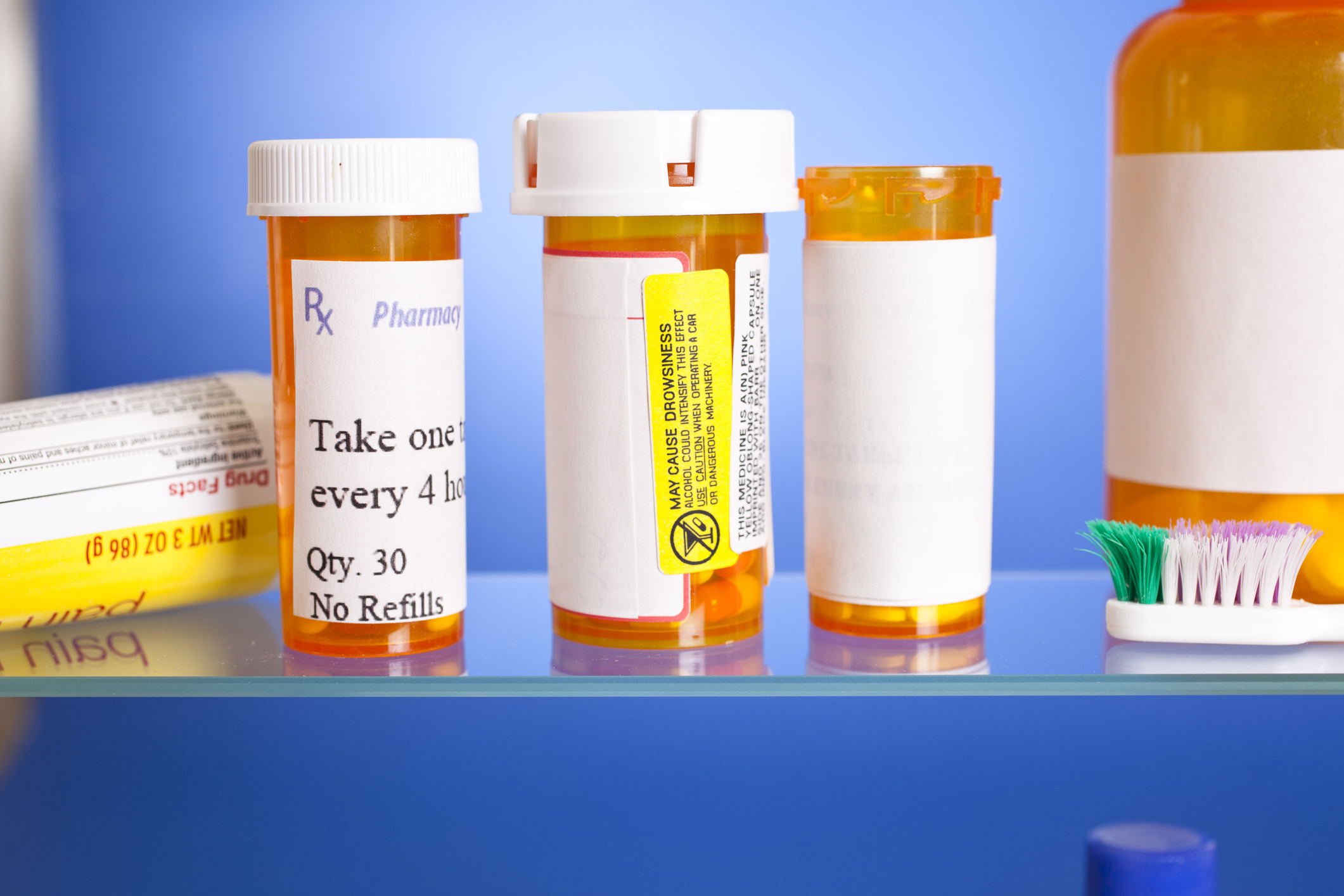Get Easy Health Digest™ in your inbox and don’t miss a thing when you subscribe today. Plus, get the free bonus report, Mother Nature’s Tips, Tricks and Remedies for Cholesterol, Blood Pressure & Blood Sugar as my way of saying welcome to the community!
Common drugs that disrupt your gut years after taking them

Drugs can save lives, but they also often come with risks.
Once you stop taking them, those risks decrease over time.
Or do they?
What if antibiotics, drugs for ulcers, even drugs to control anxiety, you took years ago are still busy rewiring your gut in ways that are not beneficial to your health?
Bad news: that’s exactly what’s happening…
Medications damage your gut for years after you take them
The trillions of bacteria, viruses, and other microorganisms that live in our gastrointestinal tract make up our gut microbiome.
Everything from digestion and immune system regulation to weight management, blood sugar control, and brain health is controlled by this collection of microorganisms in our gut.
That means when something sends the gut out of whack, it has serious consequences.
It’s not news that medications are frequently the culprit, particularly antibiotics, but also drugs for anxiety and medicines that treat ulcers. They can all lead to leaky gut syndrome.
But once you get off these drugs, things get better, right?
Not according to a study at the University of Tartu in Estonia that examined stool samples and prescription data from 2,500 participants.
Findings revealed changes in their gut microbiomes that persisted for years, even decades, after they stopped taking the drug.
“Most microbiome studies only consider current medications, but our results show that past drug use can be just as important as it is a surprisingly strong factor in explaining individual microbiome differences,” said Dr. Oliver Aasmets, lead author of the study.
Along with antibiotics, other drugs that left a lasting mark included antidepressants, beta-blockers, proton pump inhibitors, and benzodiazepines.
What this means for you
Does this mean you need to stop taking medications when you need them?
That’s a hard no. But I am suggesting that you remain aware and informed about the possible long-term effects of the drugs your doctor prescribes, and discuss that with them if you are concerned.
You may find that natural alternatives can help…
For stomach problems:
Diet plays a significant role in preventing heartburn. Good advice is to eat a diet of mainly alkaline-forming foods and avoid acid-forming foods. An alkaline-style diet includes foods rich in immune-supporting nutrients as well, such as zinc, selenium, vitamin C and antioxidants.
- Acid-forming foods – Eat less of these: Alcohol, barley, beer, beef, brazil nuts, bread, canned fruits and veggies, dried cereal, chocolate, cigarettes, coffee, most cooked grains, cornstarch, most dairy, drugs, eggs, fried food, flour, lobster, malt, pasta, pickles, popcorn, soft drinks, soybeans, sugar, artificial sweeteners, tea, table salt, wheat, and vinegar.
- Alkaline-forming foods – Eat more of these: Most green vegetables, apples, apricots, avocados, baking soda, banana, beets, broccoli, berries, chlorella, kale, lemons, lentils, lima beans, limes, lotus root, mangos, mineral water, mushrooms, mustard greens, nectarine, onion, persimmon, pineapple, pumpkin seed, raspberry, sea salt, sea vegetables, seaweed, spirulina, sprouts, sweet potato, tangerine, taro root, vegetable juices, and watermelon.
Aids that can help include:
- Apple cider vinegar is a great preventative fix for acid reflux. Take 2 tablespoons in a glass of water 30 minutes before eating to help normalize stomach acid and prevent indigestion. It’s more effective if taken before a meal. Because apple cider vinegar is a fermented product, so long as it is not pasteurized, it will contain natural probiotics that can help support a healthy gut microbiome.
- Baking soda, or sodium bicarbonate, is perhaps the best remedy when heartburn hits. Drink ½ teaspoon mixed with a cup of water. It doesn’t taste good, but some swear by it.
For anxiety:
- A University of Sydney study found certain activities can boost your brain’s natural opioid levels to help regulate fear and anxiety.
- An even simpler way is using prebiotics that ease anxiety through the gut-brain axis.
For infections, the best medicine is to reduce reliance on antibiotics by supporting your immune system. Here are some foods and nutrients that can help…
- Vitamin D3 has been proven to have a “modifying effect” on the immune system that could fortify the body against viral and bacterial pathogens. But avoid making this mistake that can weaken its impact.
- Echinacea is a medicinal plant used by Native Americans for centuries and is now commonly used as tea or syrup. Research shows it stimulates fibroblasts, which are types of immune cells involved in repair, and enhances respiratory activity. It is taken as a remedy for acute viral attacks or for prolonged periods to help boost immune function.
- Cranberries, probiotics and D-mannose can help ward off urinary tract infections. These ingredients have been shown to create an inhospitable environment in the urinary tract, making it hard for harmful bacteria to stick around (literally), supporting the immune system and restoring normal flora.
- Lastly, probiotics and prebiotics are essential to support a balanced gut microbiome.
Editor’s note: Regain your health and enjoy a full, vibrant life by defeating the real culprits of premature aging and sickness — excessive, damaging acid in your body! The truth is when you’re alkaline, wellness thrives and sickness takes a dive. Click here to discover The Alkaline Secret to Ultimate Vitality!
Sources:
Common medications may secretly rewire your gut for years — Science Daily
A hidden confounder for microbiome studies: medications used years before sample collection — American Society for Microbiology















